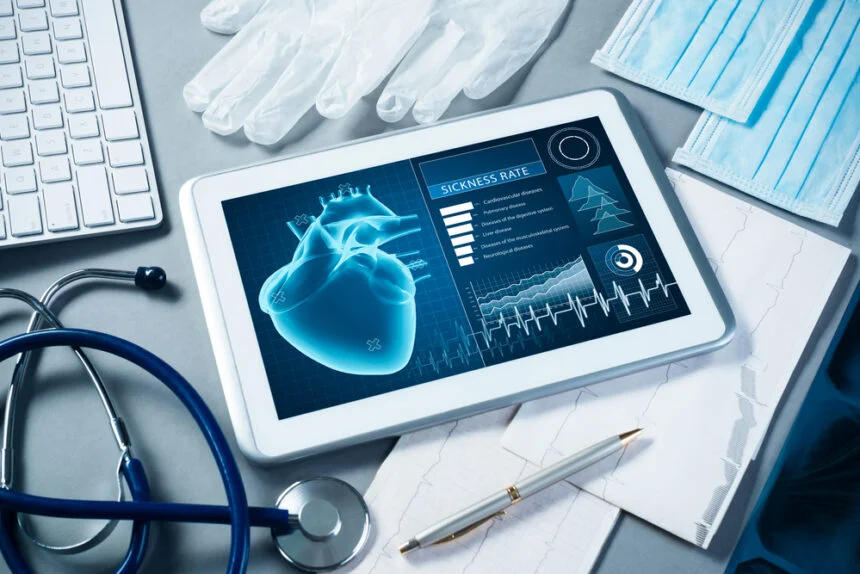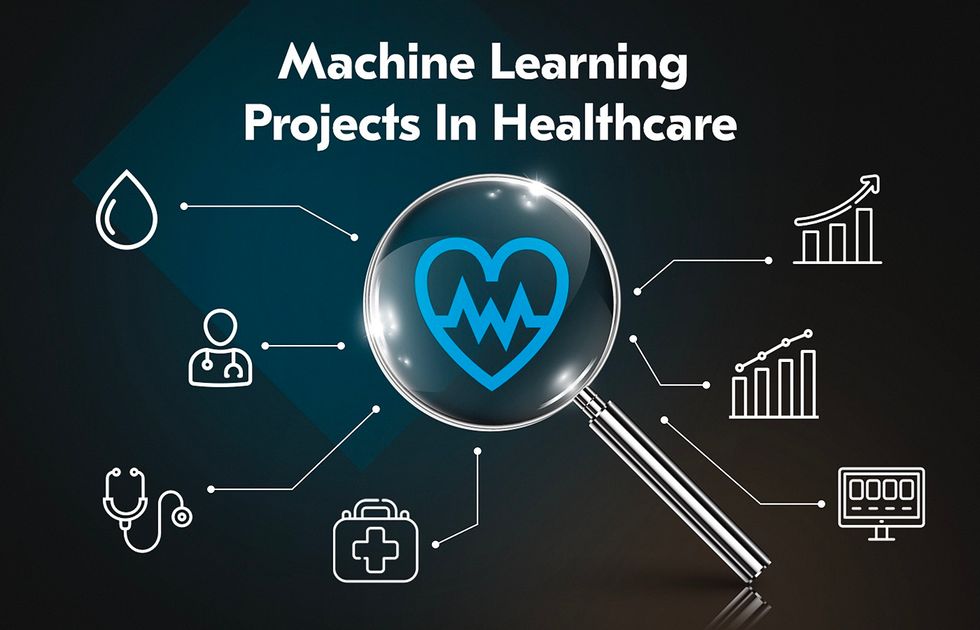
In the current fast-paced environment, technology is integral to transforming many sectors, and healthcare is no exception. Thanks to technological advances, healthcare professionals can now access cutting-edge equipment and solutions that improve the patient experience, processes, and overall efficiency. We’ll dig into the newest developments and trends changing the healthcare landscape in the wake of the Healthcare Tech Outlook.
Utilizing Telemedicine to Improve Patient Care
Telemedicine has been hailed as an innovative approach to the healthcare sector, particularly due to the COVID-19 pandemic. This revolutionary method lets patients consult with their healthcare professionals via the Internet, removing the requirement for in-person visits. Using videoconferencing, the telemedicine system allows instant communication between doctors and patients to facilitate rapid diagnostics and treatments. Additionally, telemedicine provides access and convenience, particularly for people who live in remote areas or have mobility issues.
Making use of Artificial Intelligence to help Predictive Analytics
Artificial Intelligence (AI) is revolutionizing healthcare through personalized and predictive analytics. By analyzing huge quantities of data, AI algorithms can detect certain patterns or trends clinicians could miss. This capability to predict trends in healthcare allows providers to anticipate patients’ needs, identify health risks that could be a concern, and adjust treatments accordingly. From predicting disease outbreaks to optimizing resource allocation, AI-powered analytics are increasing effectiveness and efficiency in the healthcare industry.
Enhancing Patient Engagement through Wearable Technology
Wearable technology allows people to manage their health and wellbeing. From fitness trackers and smartwatches with health-monitoring features to wearables that offer real-time insight into various health indicators, including heart rate patterns, sleep patterns, and activity levels, wearables offer real-time insight into various health indicators. This information not only aids individuals in monitoring their progress but also allows healthcare professionals to remotely monitor patients and intervene when needed. Wearable technology encourages continuous involvement and self-management by encouraging an active approach to health care.
The Future of the Surgical Procedures Using Robotics
Robotic technology revolutionizes surgical procedures by providing accuracy, control, and minimally invasive techniques. Robotic-assisted surgeries allow surgeons to complete complex procedures with greater precision and skill, resulting in shorter recovery times and less risk for patients. With the most advanced imaging capabilities and user-friendly interfaces, surgical robots allow surgeons to navigate complicated anatomical structures with the utmost precision, ensuring the best outcomes for patients.
Enhancing accessibility to healthcare via Mobile Apps
Mobile apps are changing the healthcare landscape by increasing patient access and ease of use. In addition to appointment booking and reminders for medication, healthcare apps have many functions that facilitate communication and collaboration between healthcare providers and patients. Furthermore, telehealth applications allow virtual consultations that allow patients to get medical advice at their convenience at home. With the help of mobile technology, healthcare professionals can reach a wider population and provide individualized care to meet the varied demands of patients.
Solutions to Cybersecurity Health-related Security Challenges
As healthcare becomes increasingly digitalized, cybersecurity has emerged as a major concern. The increase in electronically stored medical records and devices with interconnected connectivity has exposed healthcare institutions to cyber-attacks and data breaches. To secure patient data and ensure their patients’ trust, healthcare providers must prioritize cybersecurity measures, including encryption, access control, and periodic audits. By investing in a robust security infrastructure and encouraging an awareness culture and vigilantism, healthcare providers can minimize risks and shield sensitive data from hackers’ access.
The health industry is going through an enormous transformation driven by technological innovations. From telemedicine and artificial Intelligence to robotics and wearable technology, cutting-edge technologies transform how healthcare is delivered to patients and boost efficiency across the healthcare system. As we explore the possibilities offered by these new technologies, healthcare providers must be discerning and responsible about innovation while focusing on the safety of patients and their privacy. Utilizing the information from Healthcare Tech Outlook, healthcare professionals can stay ahead and provide high-quality, patient-centered services in an ever-changing digital environment.
Technology Trends are shaping the future of healthcare.
In the constantly evolving world of health care, tech has emerged as an example of innovation. It promises to revolutionize how we treat patients, speed up processes, and increase efficiency. Shortly, it’s essential to know the most recent tech developments that will shape the future of healthcare. This comprehensive review will examine the most innovative developments the Healthcare Tech Outlook highlights.

Telemedicine: Breaking Barriers to Access
Telemedicine has been recognized as a revolutionary force, especially after COVID-19. COVID-19 pandemic. The internet allows patients to communicate with healthcare providers via remote access, eliminating geographic obstacles and improving accessibility. Through secure video conferencing and Telehealth platforms, patients can receive prompt consultations, diagnosis, or even ongoing medical care within the comforts of home. This new method not only increases patients’ convenience but also enhances health outcomes through the early intervention process and ensures continuity of treatment.
Artificial Intelligence can be used to drive predictive insight and personalized medicine.
Artificial Intelligence (AI) has enormous potential in healthcare, allowing an array of predictive analytics and personalized treatment strategies. Utilizing artificial intelligence-powered systems, medical professionals can analyze huge quantities of patient information to detect patterns, anticipate outcomes, and create customized interventions to meet the needs of each patient. From early disease detection to optimizing treatment, AI is revolutionizing clinical decision-making and boosting efficiency across all aspects of healthcare. By harnessing the capabilities of machine learning and predictive models, healthcare institutions can provide more precise, specific care while reducing costs and improving patient outcomes.
Wearable Technology: Enabling patients to take charge of their health
Wearable technology allows people to track and manage their health in real time. Wearables provide information on health indicators, from fitness trackers to smartwatches with health-monitoring features, such as sleeping patterns, heart rate, and physical activities. Through continuous information collection, wearables allow users to monitor their progress, establish goals, and make educated lifestyle decisions. Furthermore, wearables provide remote monitoring, allowing health professionals to track patients’ health and intervene promptly. With the rise of devices that wearables can be worn, individuals are now actively involved in their healthcare journey, which leads to better outcomes and improved living quality.
Robotics: Redefining the Surgical Techniques that are precise and less invasive
Robotic technology has revolutionized surgery, offering unimaginable accuracy, control, and minimally invasive procedures. Robotic-assisted surgeries allow surgeons to carry out complicated procedures with greater precision and speed, leading to quicker recovery and lower patient risk. With advanced imaging technology and user-friendly interfaces, surgical robots permit precise navigation of intricate anatomy, ensuring the best surgical outcomes. Additionally, robotic-assisted surgery allows surgeons to operate remotely, which allows for greater availability of specialized medical treatments and expertise. As the technology of robotics constantly evolves, it is a sign of further advancement in surgical accuracy and patient safety in the healthcare field.
Mobile Apps: Increasing Patient Engagement and Care Coordination
Mobile apps are revolutionizing how patients interact with the health system, providing various functions that improve engagement and coordination. In addition to appointment schedulers and reminders for medication in remote monitoring to consultations via telehealth, healthcare applications empower patients to play an active part in regulating their health. By providing easy access to health services and information, mobile apps increase patients‘ satisfaction and compliance with their treatment plans. Furthermore, they aid in interaction between providers and patients, allowing seamless care coordination and collaboration between the care team. With the rise of smartphones, healthcare institutions use apps to provide individualized, patient-centered healthcare that can meet the changing demands of the modern healthcare consumer.
Cybersecurity: Protecting patient data in an increasingly connected world
As healthcare technology becomes more digitalized, security has become the top concern for healthcare institutions. The increasing use of electronic medical records, connected medical devices, and telehealth platforms has increased the scope of the attack and made healthcare information more susceptible to cyber-attacks and hacks. To ensure patients’ privacy and safeguard sensitive data, healthcare professionals must adopt strong cybersecurity measures, including encryption, access controls, and periodic security audits. Additionally, healthcare professionals should be trained to efficiently recognize and deal with cybersecurity threats. By prioritizing security, healthcare institutions can minimize risks and ensure patient confidence while assuring patient data security and confidentiality.
Healthcare’s future is currently being defined by cutting-edge technological advances that promise to transform patient care, increase efficiency, and increase the quality of care. Many possibilities exist, from artificial intelligence and telemedicine to robotics, wearable technology, and mobile applications. Suppose you embrace these trends in technology identified by Healthcare Tech Outlook. In that case, healthcare organizations can stay at the forefront and provide quality, personalized care to patients in an increasingly digital age. In the years ahead, as we develop and discover new avenues of research, it is essential to focus on security, privacy, and accessibility to create an improved future for all.


